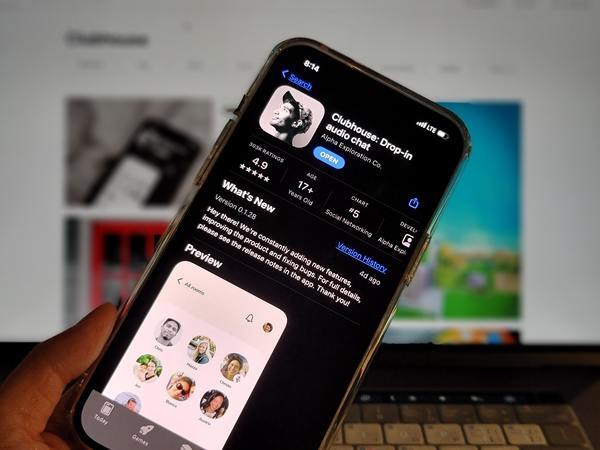
(Erin Kwon/Unsplash)
There was a time when Clubhouse was all the rage. It was two months ago. And now, it’s like nobody’s using it.
As Gizmodo recently pointed out, the startup audio-chat app, which banked heavily on exclusivity, has seen its download numbers shrink dramatically in recent months as users have moved to other places and competing social networks (most notably Twitter) cop its best features.
Part of the problem, the company seems to have figured out, is that it needs an Android app. Now, that would have been nice to have two months ago, when people were actually interested in Clubhouse. But now, it sort of feels like too little, too late to me.
I have found myself in a position where I’ve increasingly felt like I’ve been missing out by not having an iOS device, not necessarily because iOS is so hot, but because the developer interest is so strongly centered around iOS. I find myself being asked from time to time about testing apps, only to find out there was a presumption I was using iOS when I actually have been an Android user for the past few years.
It’s to the point where I find myself seriously considering buying an iPad not because I need one, but so I have a device that can run up-and-coming apps I need to be aware of as a writer who focuses on technology.
And Clubhouse is the most prominent example of this in action. The point when I actually would have cared that Clubhouse had an Android app was not now; it was two months ago. It felt unnecessarily exclusionary to leave Android users out in that point of its history.

(James Yarema/Unsplash)
The truth is, it’s understandable why devs favor iOS—for one thing, Android has so many devices that edge cases can get in the way of a clean development process, and for another, seemingly more people in their home market, the U.S., use iOS over Android. It seems like it hits the broadest swath of people.
But I think that it would be nice if there was a way for app developers to more consistently develop in a cross-device way. That answer has been around for years, actually—it’s called the Progressive Web App, and it can do a lot thanks to HTML standardization. At the time the concept was first sold to developers, it was on the original iPhone, a device as powerful as a 386-class desktop computer, and it wasn’t really “progressive.” But now, as mobile chips are often as powerful as laptop chips, the case is much more compelling.
But the problem is, the lip-service-style support Apple has given web apps over the years has not kept up with the technology, according to a Google engineer. In a recent blog post, Alex Russell pointed out that Apple’s approach to the open web has limited innovation, and made a case that Apple has intentionally limited WebKit’s development, which has harmed the potential of the PWA in the market.
The argument, tied to the Epic Games vs. Apple legal battle, comes at an interesting time, but it underlines one of the reasons I stuck with Android after giving the iPhone a closer look than usual this time—better browsers. (Another reason: I use USB-C for everything. Screw Lightning.) For all its power-sipping capabilities, the truth is Safari is minimalistic to a fault and I want something more functional, and Apple’s iOS rules limit other browsers from being anything more than simple front-ends for Safari.
The fact that Apple intentionally blocks, say, Vivaldi from competing with WebKit means that web standards only improve on Apple’s schedule, and given that Apple is the only major browser-maker that hasn’t moved to a more agile, multi-week development cycle, it means features simply come slower to WebKit than other devices.
And that means that developers stick with the Apple ecosystem even for apps that could be delivered entirely over the web, and well at that.
If Apple is serious about not being seen as a monopoly, it needs to open up the web browser on iOS, so the next Clubhouse isn’t an iOS exclusive. Plenty of apps will still be on the App Store, most notably games which need the platform-specific horsepower, but it will hugely benefit consumers as a whole.
Time limit given ⏲: 30 minutes
Time left on clock ⏲: 26 seconds



